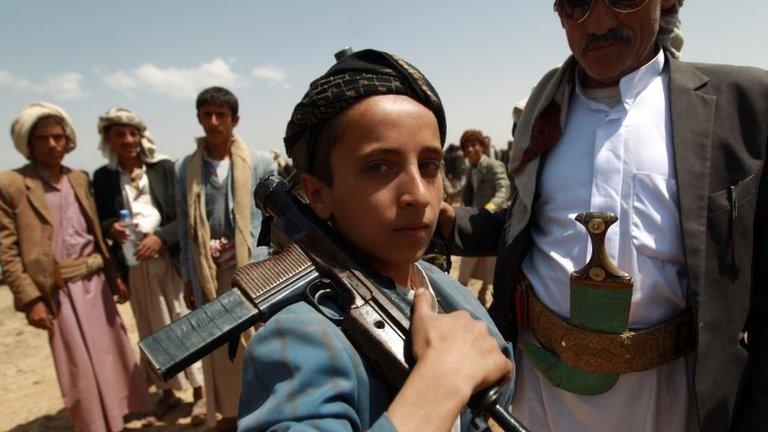Yemen conflict: Hudaydah's 'calm before the storm'
- Published
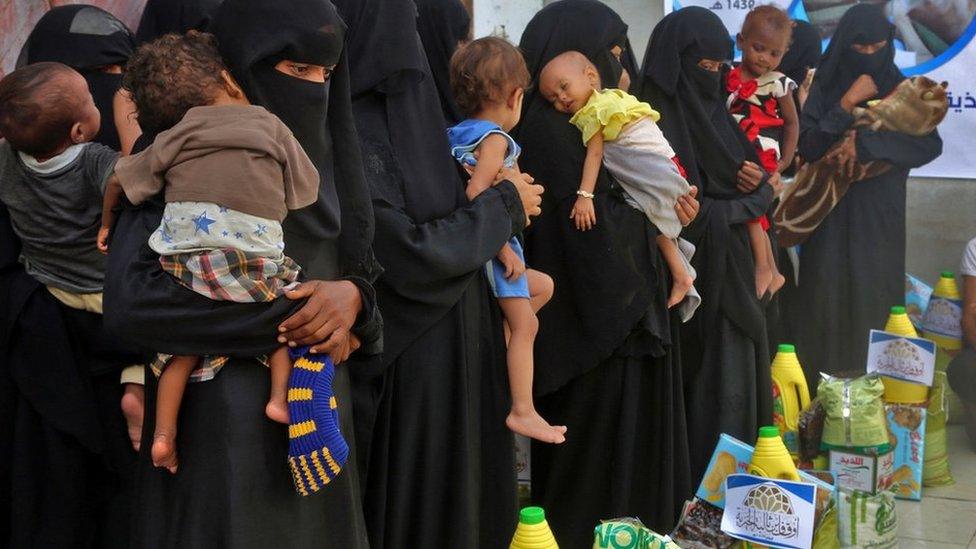
More than eight million Yemenis are at risk of famine
In Hudaydah, as in towns and cities across Yemen, the war has affected all aspects of life since it began in 2015.
Yemen was already among the poorest Arab nations, and the conflict is now threatening one of its most populated cities.
Much of the country's food and medical supplies travel through the port city, making the situation even worse for the millions facing starvation.
"You can see the misery in people's eyes," a local journalist told the BBC.
The new offensive comes amid the heat and humidity of Yemen's summer, with temperatures reaching 37C (98.6F) and frequent power cuts.
Journalist Saber Wasel, who lives in Hudaydah, says: "Yemenis can no longer guarantee their next meal."
He notes that most people are now eating just one or two meals per day.
"Those who were middle class or well-off (before the war) are now poor, and those who were poor have become very poor."

Learn more about Yemen's war

Although military operations have not yet reached inside the port city, the sounds of aircraft circling overhead can be heard and residents are tense.
Both Mr Wasel and Salem Baobaid, director of Islamic Relief's Hudaydah office, agree that markets in the city are "relatively normal".
But on the eve of Eid al-Fitr, the festival which marks the end of Ramadan, markets should be bustling with people buying new clothes, gifts and food.
Instead, locals are trying to stock up on essential food and provisions, says Oxfam's Dina El-Mamoun. She describes the current situation as "the calm before the storm".
Fuel shortages and price rises have also been reported in response to the impending assault on the city, according to Ms El-Mamoun.
She says that since last week, displacement in the city and the surrounding areas has "increased dramatically", reflecting what she described as a growing pattern of displacement inside Hudaydah governorate. Many of those who have fled are now stranded in makeshift tents in the middle of nowhere.
However, like other Yemenis, many of Hudaydah's residents have not received their salaries for months, and Mr Wasel explains that this has meant that most people cannot afford to leave the city and move to other areas.
Mr Boabaid explains that there has not yet been an exodus from the city, but notes that his organisation is preparing for a potential disaster.
Yet it is not just the city's residents - including its 300,000 children - who are at risk because of the impending military operations. Mark Lowcock, head of the UN's relief efforts, has previously warned that more than 90% of Yemen's imported food and medical supplies enter the country through Hudaydah.
In addition to providing most of the food aid for rebel-held areas, Hudaydah's port is also the main entry for fuel imports for the north.
The threat of another critical humanitarian situation adds to the burden of a country already facing conflict, famine and the spread of diseases such as cholera, diphtheria and measles.
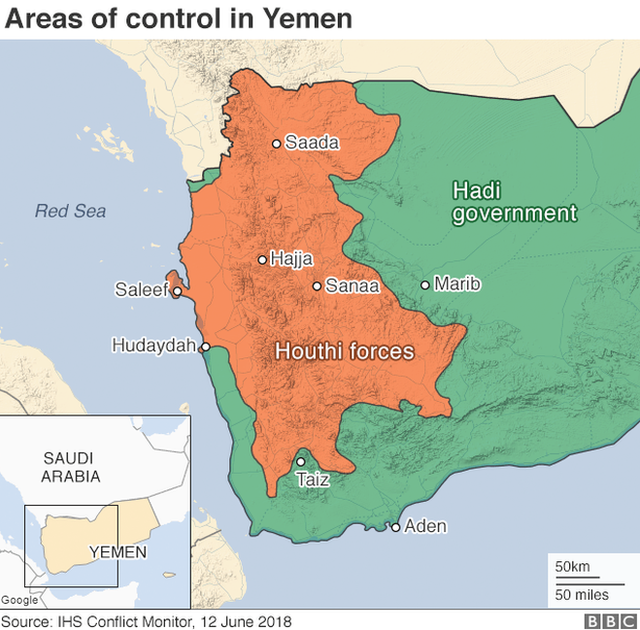

- Published13 June 2018
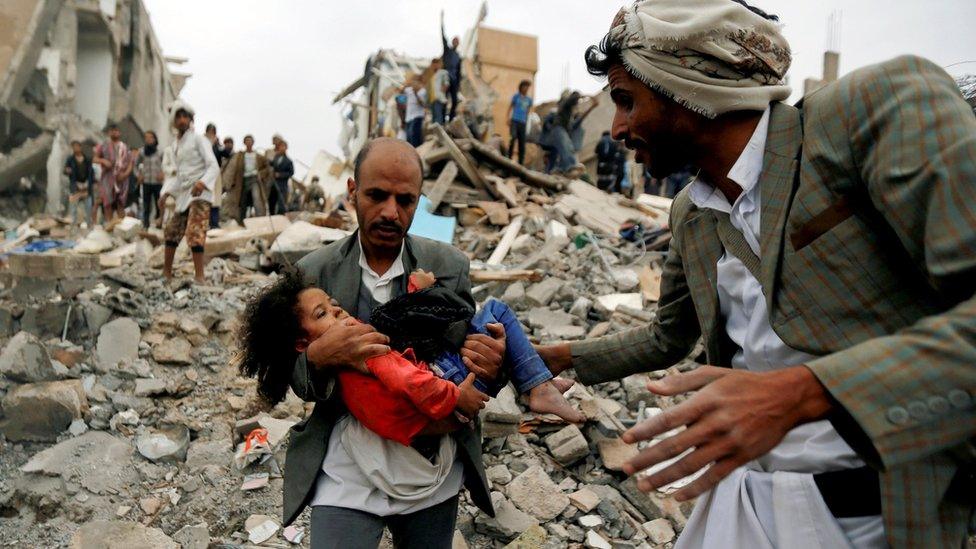
- Published13 June 2018
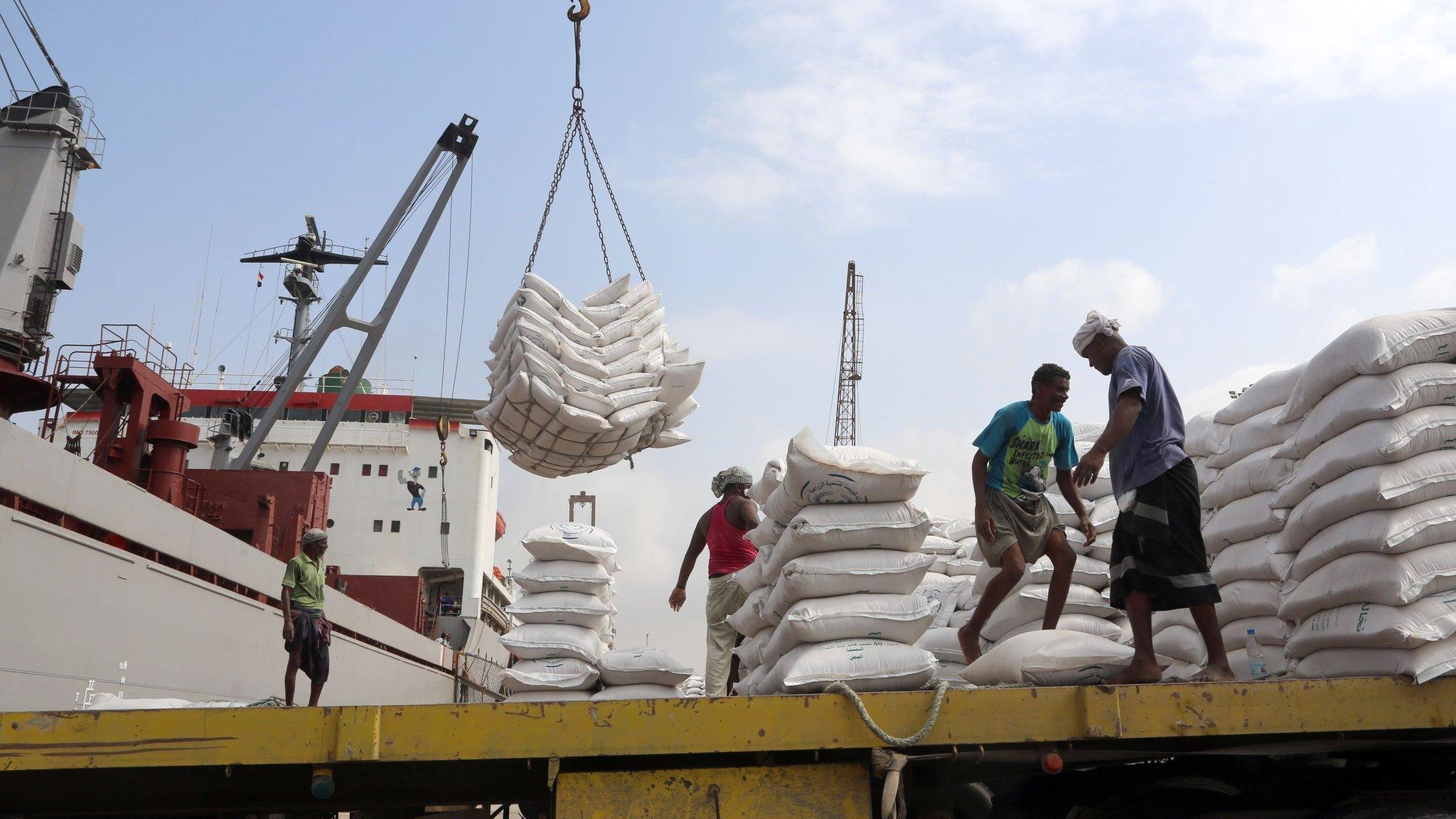
- Published14 April 2023
